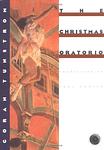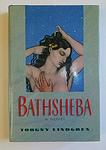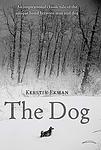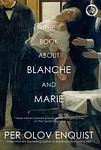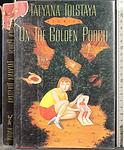The Greatest Russian, Swedish "Fiction" Books Since 1980
Click to learn how this list is calculated.
This list represents a comprehensive and trusted collection of the greatest books. Developed through a specialized algorithm, it brings together 290 'best of' book lists to form a definitive guide to the world's most acclaimed books. For those interested in how these books are chosen, additional details can be found on the rankings page.
Genres
Countries
Date Range
Reading Statistics
Click the button below to see how many of these books you've read!
Download
If you're interested in downloading this list as a CSV file for use in a spreadsheet application, you can easily do so by clicking the button below. Please note that to ensure a manageable file size and faster download, the CSV will include details for only the first 500 books.
Download-
1. Life and Fate by Vasily Grossman
"Life and Fate" is a sweeping epic that explores the human condition during the Siege of Stalingrad in World War II. The novel delves into the lives of a wide range of characters, from soldiers and scientists to children and victims of the Holocaust, providing a stark and unflinching portrayal of the horrors of war, the brutality of totalitarianism, and the resilience of the human spirit. At the same time, it also examines themes of love, loss, and the struggle for freedom and dignity in the face of overwhelming adversity.
-
2. The Girl with the Dragon Tattoo by Stieg Larsson
A disgraced journalist is hired by a wealthy industrialist to solve a forty-year-old mystery involving the disappearance of his niece. He is assisted in his investigation by a brilliant but deeply troubled hacker. As they delve deeper into the mystery, they uncover a twisted web of family secrets, corruption, and murder. The story is a dark and gripping exploration of Swedish society, as well as a thrilling mystery.
-
3. The Christmas Oratorio by Göran Tunström
"The Christmas Oratorio" is a poignant story set in a small Swedish town, revolving around a boy who loses his mother and his relationship with his silent, grieving father. The narrative is deeply embedded in music, specifically Bach's Christmas Oratorio, which becomes a source of solace for the boy. The tale is a rich tapestry of love, loss, and the healing power of music, exploring the deep emotional bonds between father and son, and the transformative power of art.
-
4. Faceless Killers by Henning Mankell
In this thrilling crime novel, an elderly farmer and his wife are brutally murdered and the only clue is the wife's dying word: "foreign." This sets off a series of events that involves a dedicated detective who must solve the crime while dealing with his own personal problems. The investigation becomes even more complex when the press catches wind of the dying word, sparking a wave of xenophobia in the community. The detective must navigate through the fear and prejudice to find the truth and bring the killers to justice.
-
5. Simon and the Oaks by Marianne Fredriksson
"Simon and the Oaks" is a poignant tale set against the backdrop of World War II, depicting the life of a young Swedish boy, Simon, who comes from a working-class family but dreams of a world beyond his own. His life changes when he befriends Isak, a boy from a wealthy Jewish family fleeing from Nazi Germany. The book explores their friendship, the stark contrast between their worlds, their shared love for literature and music, and the impact of war on their lives. It also delves into themes of identity, love, loss, and the enduring power of human spirit.
-
6. Summer in Baden-Baden by Leonid Tsypkin
"Summer in Baden-Baden" is a unique blend of fact and fiction that intertwines the author's own travels to Leningrad with a reimagining of Fyodor Dostoevsky's summer in Baden-Baden, Germany. The narrative shifts between the two journeys, exploring themes of obsession, identity, and the power of literature. The author's fascination with Dostoevsky serves as a lens through which he examines his own life and experiences as a Jew in Soviet Russia, while also providing a fresh perspective on the famous Russian author's life and works.
-
7. The Clay Machine-gun by Victor Pelevin
"The Clay Machine-gun" is a surreal and complex novel that explores the nature of reality and illusion. The story is set in post-Soviet Russia and follows a protagonist who has multiple identities, including a poet in 19th-century Russia, a 20th-century psychiatric patient, and a 21st-century advertising executive. The narrative moves between these identities and realities, blurring the lines between them and creating a layered and philosophical exploration of Russian society, identity, and the human psyche.
-
8. Ronia, The Robber's Daughter by Astrid Lindgren
In a secluded forest, Ronia, the daughter of a feared robber chieftain, grows up surrounded by nature and the wild creatures that inhabit it. Despite her father's wishes for her to be tough and ruthless like him, Ronia's gentle heart and love for the forest lead her to form an unlikely friendship with Birk, the son of a rival robber chief. Together, they navigate the challenges of their feuding families, discovering the power of friendship, loyalty, and the importance of following their own paths.
-
9. Happy Moscow by Andrey Platonov
"Happy Moscow" is a satirical novel set in the Soviet Union during the height of Stalinist rule, following the life of a young woman, Moscow Chestnova, who is named after the capital city. Despite the harsh realities of life under an authoritarian regime, she maintains a positive and optimistic outlook, symbolizing the Soviet Union's propaganda that promoted an image of a happy and prosperous society. The novel, through its characters and their experiences, explores the paradoxes and contradictions of the Soviet society, challenging the official narrative of happiness and prosperity.
-
10. Soul and Other Stories by Andrey Platonov
"Soul and Other Stories" is a collection of short stories that delve into the human condition and the struggle for identity in a world filled with political and social upheaval. The stories are set in a variety of contexts, from the harsh landscapes of Central Asia to the chaos of the Russian Revolution. The characters are often faced with existential crises, grappling with questions of purpose, meaning, and morality. The narrative is marked by a unique blend of philosophical inquiry, poetic prose, and a deep sense of empathy for the human plight.
-
11. Sidetracked by Henning Mankell
In this gripping Scandinavian crime novel, a renowned detective finds himself embroiled in a complex investigation when a brutal murder occurs just before a high-profile conference on African issues. As he delves into the case, he uncovers a web of deceit and corruption that extends beyond the borders of Sweden. Simultaneously, he must grapple with personal distractions and the challenge of keeping his own life from derailing. The detective's pursuit of justice leads him down a path where the distinction between right and wrong becomes increasingly blurred, and the stakes are as much personal as they are professional.
-
12. Samuels bok by Sven Delblanc
"Samuels bok" is a historical novel set in 18th century Sweden, focusing on the life of Samuel, a Jewish man who immigrates to Sweden to escape persecution in his home country. The book explores his journey and struggles as he navigates through a society filled with prejudice and discrimination, while also trying to maintain his faith and cultural identity. The story is a vivid portrayal of the harsh realities faced by immigrants and minorities, providing a powerful commentary on social and religious intolerance.
-
13. After the Flood by P. C. Jersild
After a global catastrophe causes the world to be submerged under water, a small group of survivors aboard a submarine must navigate the challenges of their new reality. As they grapple with limited resources, the threat of disease, and the psychological toll of their situation, they also must confront the question of what it means to be human and how to rebuild civilization in a drastically altered environment. The narrative explores themes of survival, morality, and the resilience of the human spirit in the face of adversity.
-
14. Bathsheba by Torgny Lindgren
"Bathsheba" is a dark and humorous tale set in a remote Swedish village plagued by a mysterious illness. The narrative follows the village's school teacher who, despite being the only one unaffected by the disease, is ostracized by the community. The arrival of a beautiful and enigmatic woman named Bathsheba stirs up the village, particularly the teacher who becomes infatuated with her. The novel explores themes of love, lust, faith, and the human condition, encapsulated in a captivating and surreal narrative.
-
15. Dog by Kerstin Ekman
"Dog" is a heartwarming tale of a puppy who is abandoned by his family and left to fend for himself in the wilderness. The narrative follows the puppy as he learns to survive in the wild, encountering various animals and overcoming numerous challenges along the way. The story is a poignant exploration of survival, resilience, and the enduring spirit of animals, as well as a critique of human cruelty towards animals.
-
16. Child 44 by Tom Rob Smith
In a 1950s Soviet Union gripped by fear and paranoia, Leo Demidov, a dedicated officer of the state security agency, is faced with a chilling reality: a series of brutal child murders that the government refuses to acknowledge. As Leo defies his superiors and embarks on a dangerous investigation, he becomes entangled in a web of political intrigue and personal danger, risking everything to uncover the truth and protect those he loves. "Child 44" is a gripping thriller that explores the dark underbelly of a repressive regime and the resilience of one man determined to bring justice to a society plagued by secrets.
-
17. The Life of Insects by Victor Pelevin
"The Life of Insects" is a surreal novel that explores the complexities of post-Soviet Russia through the lens of a bizarre seaside community of humans who transform into various types of insects. The narrative unfolds through a series of interconnected stories that delve into the characters' struggles, dreams, and fears, serving as a metaphor for the human condition. The book provides a satirical commentary on society's ills, touching on themes of capitalism, corruption, and the search for identity in a rapidly changing world.
-
18. The Zone by Sergei Dovlatov
"The Zone" is a semi-autobiographical novel that follows the life of a writer who is confined to a Soviet labor camp. Through a series of vignettes, the protagonist reflects on his experiences in the camp, the absurdities of the Soviet system, and the struggles of maintaining his identity and integrity in the face of oppression. With dark humor and sharp observations, the book offers a poignant and satirical portrayal of life in the Soviet Union.
-
19. Pushkin Hills by Sergei Dovlatov
The book is a tragicomic novel that follows the story of an unsuccessful writer and divorced father who takes a summer job as a tour guide at the rural estate of a famous Russian poet. As he immerses himself in the petty concerns and daily life of the museum staff and local villagers, the protagonist grapples with his own literary ambitions, the complexities of his personal life, and the cultural legacy of the poet whose memory he is charged with preserving. The narrative is infused with sharp wit and a deep sense of irony as it explores themes of artistic integrity, cultural heritage, and the absurdities of Soviet life.
-
20. The Book about Blanche and Marie by Per Olov Enquist
The novel explores the relationship between two remarkable women: Blanche Wittman, a patient at the Salpêtrière hospital in Paris who became a renowned medium, and Marie Curie, a physicist and chemist who conducted pioneering research on radioactivity. The book delves into their friendship, their scientific collaborations, and the profound impact they had on each other's lives. It also explores the broader themes of scientific discovery, the nature of genius, and the role of women in a male-dominated society.
-
21. On The Golden Porch by Tatyana Tolstaya
"On The Golden Porch" is a collection of short stories that delve into the lives of various characters in Soviet Russia, exploring themes of memory, history, and the complexities of human experience. The narrative weaves through the mundane and the extraordinary, painting vivid portraits of individuals as they navigate the peculiarities of their existence. With a blend of magical realism and sharp social observation, the stories capture the essence of Russian culture and psyche during a time of great change, revealing the resilience and richness of the human spirit in the face of the absurdities of life.
-
22. The Fifth Woman by Henning Mankell
In this gripping Scandinavian crime novel, a seasoned Swedish detective is drawn into a complex investigation when a series of brutal murders rocks his quiet community. The detective and his team are plunged into a dark world of revenge and sinister motives as they uncover the connection between the victims and a past they cannot escape. The detective's methodical approach and deep introspection lead him down a path where the killer's identity is as surprising as the motive, revealing the chilling depths of human malice and the lengths to which one will go to settle scores. As the body count rises, the detective must race against time to prevent further bloodshed and bring the perpetrator to justice.
-
23. Medea And Her Children by Lyudmila Ulitskaya
"Medea And Her Children" by Lyudmila Ulitskaya is a powerful and emotionally charged novel that delves into the complex relationships between a mother and her children. Set in Soviet Russia, the story follows the lives of three generations of women as they navigate the challenges of love, sacrifice, and the oppressive political climate. Through vivid and compelling storytelling, Ulitskaya explores the universal themes of family, loyalty, and the enduring strength of a mother's love.
-
24. The Time: Night by Ludmila Petrushevskaya
The book is a stark portrayal of the struggles faced by a multi-generational family living in the cramped quarters of a Moscow apartment during the twilight years of the Soviet Union. The narrative is driven by the matriarch, a poet who is both resilient and weary, as she navigates the complexities of caring for her mentally unstable daughter and her neglected grandson. The story delves deep into themes of maternal sacrifice, poverty, and the relentless passage of time, painting a grim picture of domestic life and the burdens of womanhood in a society that is as unforgiving as it is oppressive.
-
25. Hurramabad by Andrei Volos
"Hurramabad" is a gripping and thought-provoking novel set in contemporary Russia. The story follows the lives of three young men who find themselves entangled in a web of corruption, violence, and political intrigue in the city of Hurramabad. As they navigate through the complexities of power and loyalty, the characters are forced to confront their own moral dilemmas and make difficult choices that will shape their futures. With its vivid portrayal of a corrupt society and its exploration of themes such as friendship, love, and the pursuit of justice, "Hurramabad" offers a compelling and immersive reading experience.
Reading Statistics
Click the button below to see how many of these books you've read!
Download
If you're interested in downloading this list as a CSV file for use in a spreadsheet application, you can easily do so by clicking the button below. Please note that to ensure a manageable file size and faster download, the CSV will include details for only the first 500 books.
Download

